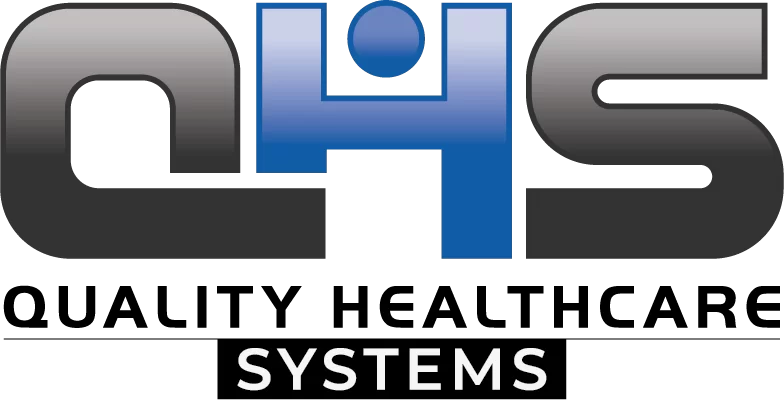Opening a pharmacy is a rewarding business venture that offers essential healthcare services to communities. However, the process involves several complex steps, from securing licenses to managing billing processes. This guide walks you through the 10 essential steps to open a pharmacy, helping you navigate regulations, financing, and operations with ease.
10 Steps to Open a Pharmacy
Step 1: Research the Pharmacy Business Landscape
Before diving into the pharmacy business, it’s crucial to understand the current market landscape. Research the demand for pharmacies in your area, the competition, and the regulatory environment. This step is vital to ensure that your pharmacy can thrive in the chosen location.
Key Considerations:
- Market Demand: Are there underserved areas in need of pharmacy services? Research population demographics, nearby medical facilities, and existing pharmacies to find gaps in the market.
- Regulatory Requirements: Familiarize yourself with federal and state regulations for pharmacies. Each state may have specific licensing requirements that must be met before opening.
- Competitor Analysis: Identify the strengths and weaknesses of existing pharmacies in your area. This can help you differentiate your services and attract more customers.
By conducting thorough research, you’ll be better equipped to make informed decisions about your pharmacy’s location, services, and target audience. A well-researched business strategy sets the foundation for success.
Step 2: Build Your Pharmacy Business Plan
A comprehensive business plan is essential for securing financing and outlining your pharmacy’s goals. It serves as a roadmap for your business and provides clarity on operations, finances, and growth strategies.
Your business plan should include:
- Executive Summary: A brief overview of your business, including your mission statement and vision.
- Market Analysis: Insights into your target audience, competitors, and industry trends.
- Financial Projections: Estimated costs, revenue, and profit margins. This section should include cash flow forecasts and break-even analysis.
- Operational Plan: Daily operations, staffing needs, and customer service protocols.
Step 3: Secure Financing for Your Pharmacy
Starting a pharmacy requires significant capital. Whether you’re opening a new pharmacy or purchasing an existing one, securing financing is a critical step.
Common expenses include:
- Licensing Fees: For state and federal permits.
- Inventory and Equipment: Including medications, medical supplies, and furniture.
- Staffing Costs: Salaries for pharmacists, technicians, and administrative staff.
Estimated Cost Table for Opening a Pharmacy
| Expense Category | Estimated Cost Range |
| Licensing and Permits | $5,000 – $20,000 |
| Inventory | $50,000 – $150,000 |
| Equipment | $20,000 – $75,000 |
| Staffing | $40,000 – $100,000 |
| Marketing and Branding | $10,000 – $25,000 |
| Miscellaneous Expenses | $10,000 – $30,000 |
| Total Estimated Cost | $135,000 – $400,000 |
Consider approaching banks, credit unions, or small business loan programs to secure funding. Additionally, explore grants for healthcare businesses. Having a solid business plan can make securing loans easier.
Step 4: Obtain Pharmacy Licensing and Permits
Operating a pharmacy requires various licenses and permits. These may include:
- Federal Licenses from the DEA for handling controlled substances.
- State Licenses for operating a retail pharmacy.
- Business Permits required by local authorities.
Licensing requirements vary by state, so ensure you stay compliant with both federal and state regulations to avoid legal issues. The process may take several weeks or months, so start early.
Step 5: Choose a Suitable Location for Your Pharmacy
The success of your pharmacy can heavily depend on its location. Choose a spot that offers high visibility, accessibility, and proximity to healthcare providers. A well-chosen location can significantly impact your customer base.
Checklist for Selecting a Location:
- Is the location easily accessible by foot or car?
- Is there sufficient parking available?
- Is it near hospitals, clinics, or senior living facilities?
- Does it meet zoning requirements for a pharmacy?
Additionally, consider the lease terms, local competition, and community demographics when choosing a location.
Step 6: Set Up Your Pharmacy Operations
Setting up your pharmacy involves more than just securing a location. You’ll need to:
- Hire Qualified Staff: Pharmacists, technicians, and administrative staff are essential for running your pharmacy smoothly. Ensure they have the necessary licenses and certifications.
- Install Necessary Equipment: Point-of-sale (POS) systems, security systems, and pharmacy management software are crucial for efficient operations.
- Implement Inventory Management Systems: Proper inventory management ensures you have the right medications in stock without over-ordering.
Operational efficiency is key to maintaining customer satisfaction & retention and ensuring compliance with regulations.
Step 7: Establish Vendor and Supplier Relationships
Building strong relationships with reliable suppliers is essential to maintain a steady inventory of medications and supplies. Reliable vendors ensure timely delivery and consistent stock levels.
Key Vendors to Consider:
- Pharmaceutical Wholesalers: For prescription drugs.
- Medical Supply Companies: For equipment and non-prescription items.
- Local Distributors: For faster delivery.
Negotiate favorable terms with suppliers to ensure your pharmacy remains competitive.
Step 8: Implement Billing and Insurance Processes
Effective billing and insurance processes are vital to your pharmacy’s profitability. Partnering with experts can help streamline your billing operations.
At QHS, we specialize in helping pharmacies manage billing for wound care supplies, equipment, and other pharmacy billing processes, ensuring timely payments and reducing claim denials. Accurate billing processes improve cash flow and reduce administrative burdens.
Step 9: Launch Your Pharmacy Marketing Campaign
Promoting your pharmacy is essential to attract customers. Consider the following marketing strategies:
- Online Presence: Create a website and optimize it for local SEO. Ensure your pharmacy is listed on Google My Business.
- Social Media: Engage with your community on platforms like Facebook, Instagram, and LinkedIn. Share health tips, promotions, and news.
- Community Outreach: Partner with local healthcare providers and participate in community events to increase brand awareness.
Marketing helps build trust and loyalty among customers, which is crucial for long-term success.
Step 10: Monitor Compliance and Optimize Operations
Once your pharmacy is up and running, ongoing compliance and operational optimization are crucial for long-term success.
- Conduct Regular Audits: Ensure all processes meet regulatory standards.
- Stay Updated on Regulations: Keep abreast of changes in healthcare laws and adjust your operations accordingly.
- Optimize Inventory Management: Regularly review inventory levels to reduce waste and improve profitability.
Continuous improvement ensures your pharmacy remains competitive and compliant.
Conclusion
Opening a pharmacy involves a multi-step process that requires careful planning, regulatory compliance, and effective operations. By following these 10 steps, you can set your pharmacy up for long-term success.
Need help managing your pharmacy’s billing and compliance? Book a call with QHS today for expert assistance!






